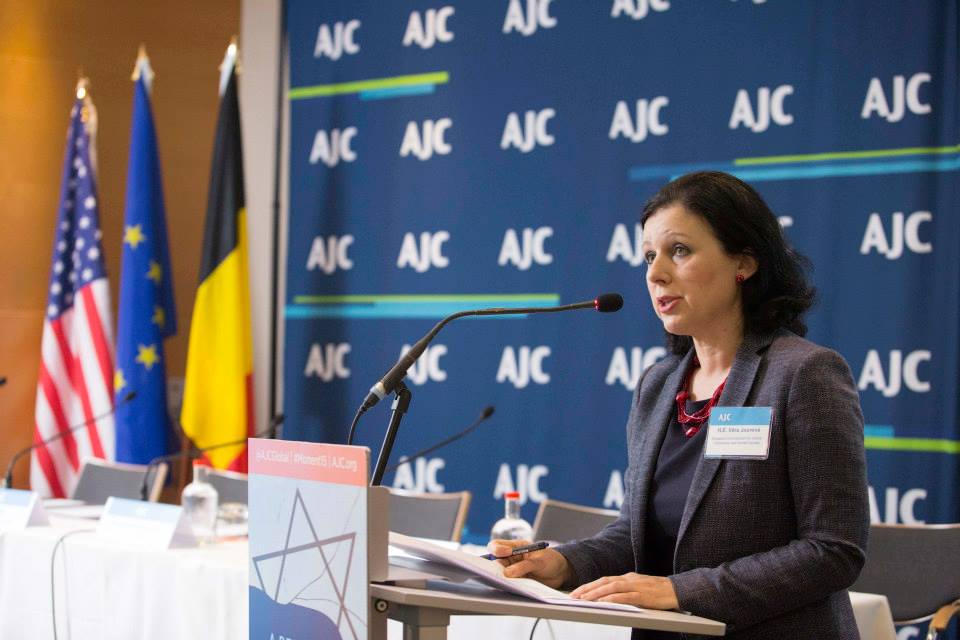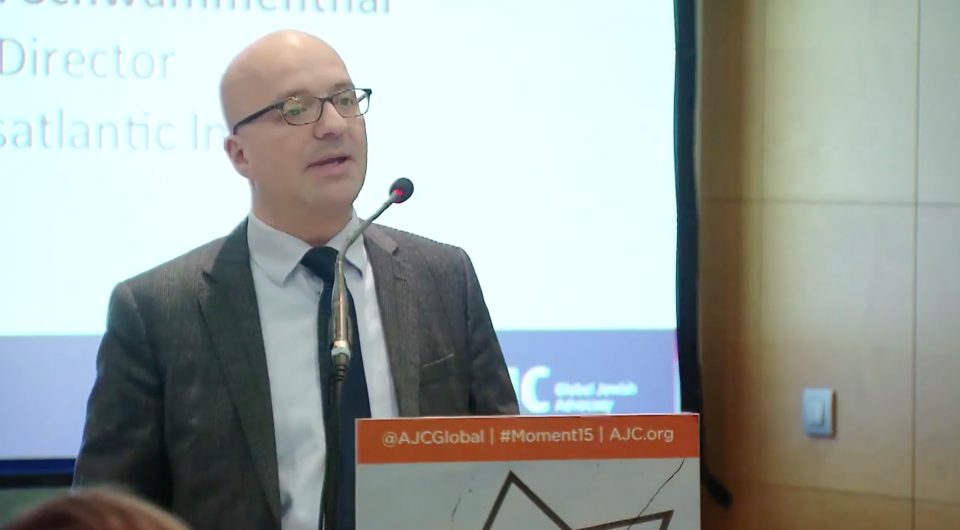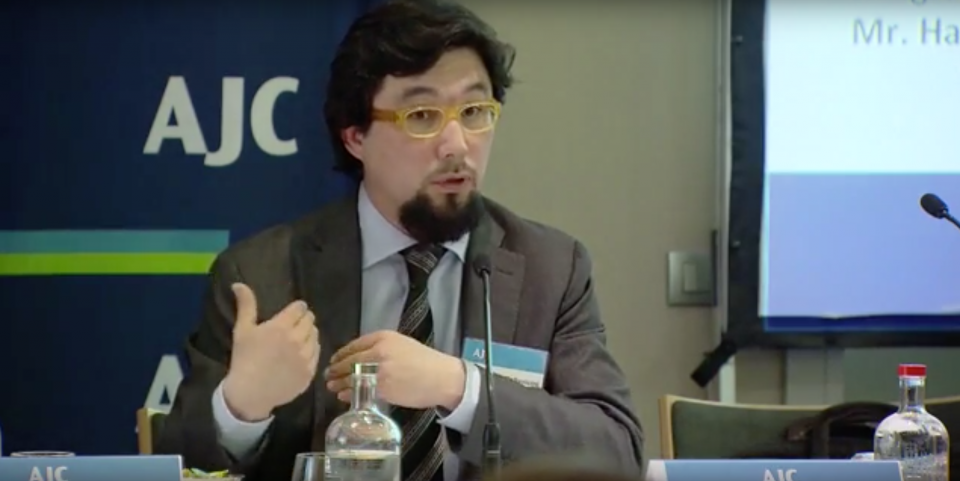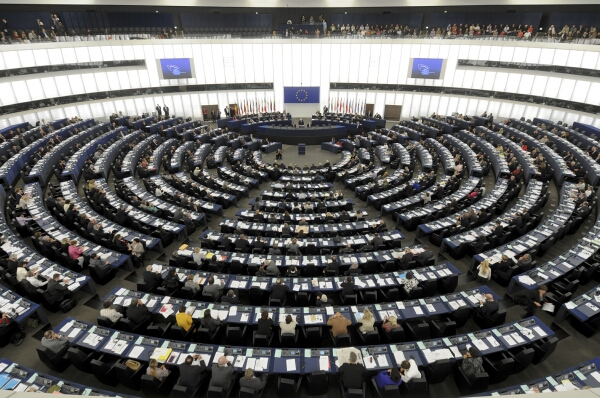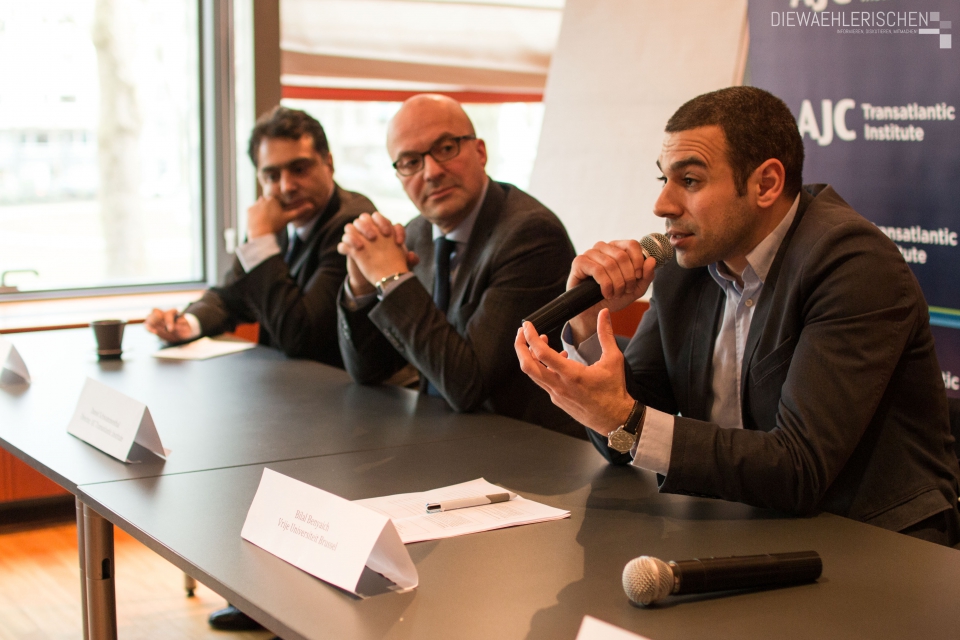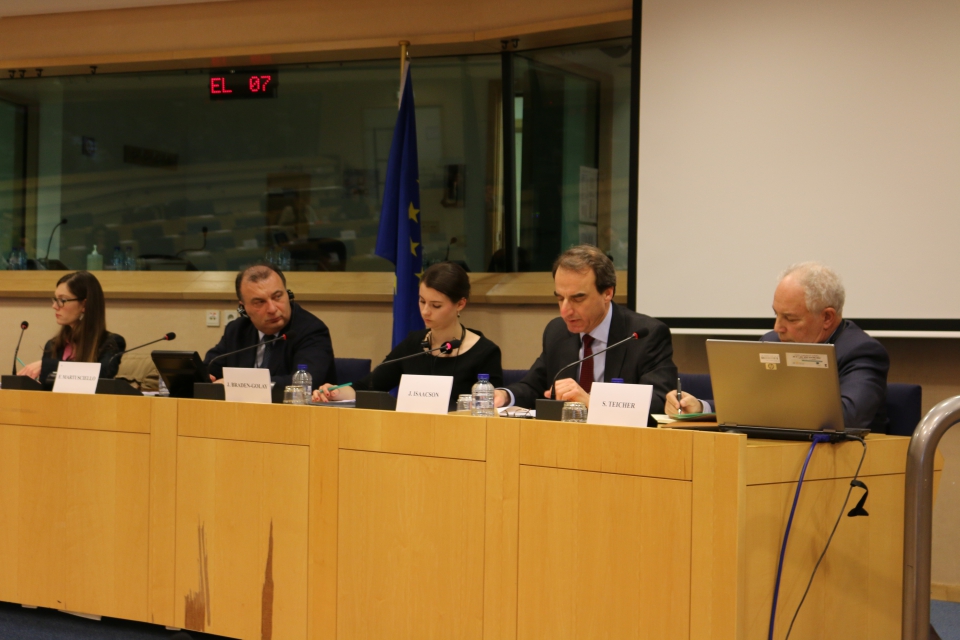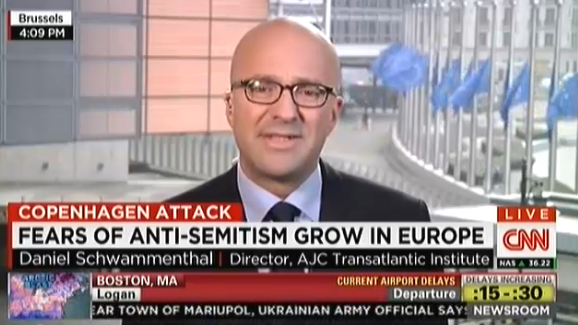Press releases
AJC Transatlantic Institute Praises European Parliament for Endorsing in Resolution the Working Definition of Antisemitism
Brussels – 1 June 2017 – The AJC Transatlantic Institute praised the European Parliament for adopting with overwhelming support a Resolution on Combatting Antisemitism which endorses the working definition of anti-Semitism of the International Holocaust Remembrance Alliance.
That definition, which all EU Member States welcomed in January this year, outlines how modern anti-Semitism manifests itself, for example, through the demonization of Israel, or by holding Jews collectively or individually responsible for Israel’s actions.
“The European Parliament must be applauded for taking this significant step toward fighting all forms of anti-Jewish hatred, including the variety that tries to hide its ugly face behind a false veneer of respectability-- so-called legitimate criticism of Israel that in reality questions the very legitimacy of the Jewish state,” said Daniel Schwammenthal, Director of the AJC Transatlantic Institute. “Those who falsely claim the working definition limits freedom of expression are demanding the freedom to deny the Jewish people the right granted to every other people, the right to self-determination–in other words they claim the freedom to engage in anti-Semitism. Parliament has told these people today loud and clearly that this house will not tolerate anti-Semitism, whether in the open or in disguise.”
Lawmakers today overwhelmingly approved the Resolution. It calls on EU Member States and the EU institutions and agencies to adopt and apply the working definition of anti-Semitism. Among the other key elements, the Resolution calls on EU Member States to help ensure the physical security of their Jewish citizens and Jewish institutions; to appoint national coordinators on combating anti-Semitism; to systematically and publicly condemn anti-Semitic statements, to ensure that teachers are properly trained to teach the Holocaust in diverse classrooms; and encourages Member States to review school textbooks to ensure that Jewish history and contemporary Jewish life are presented in a comprehensive and balanced way and that all forms of anti-Semitism are avoided.
The Resolution has become necessary as within living memory of the Holocaust, the remnants of Europe’s Jewish communities have endured a steep rise in anti-Semitic terrorism, attacks and incidents. Since 2012 alone, at least 14 people have been killed in anti-Jewish violence in the EU.
In May 2016, IHRA’s 31 Member States, of which 24 are EU members, unanimously adopted the definition by the EUMC, the EU Fundamental Rights Agency’s predecessor. In January 2017, all EU members of the OSCEwelcomed IHRA’s adoption of the definition and confirmed their support for the definition’s endorsement at the OSCE. Commissioner Věra Jourová politically endorsed the IHRA definition in January. The UK adopted the IHRA working definition in December 2016, followed by Austria this April. It is already commonly used by the British police, the training of Austrian andRomanian prosecutors, and NGOs tracking anti-Semitic incidents.
The working definition includes other contemporary examples of anti-Semitism, such as: 1) Calling for, aiding, or justifying the killing or harming of Jews in the name of a radical ideology. 2) Making dehumanizing, or demonizing allegations about Jews — such as the myth about a world Jewish conspiracy. 3) Accusing the Jews as a people, or Israel as a state, of exaggerating or inventing the Holocaust.

